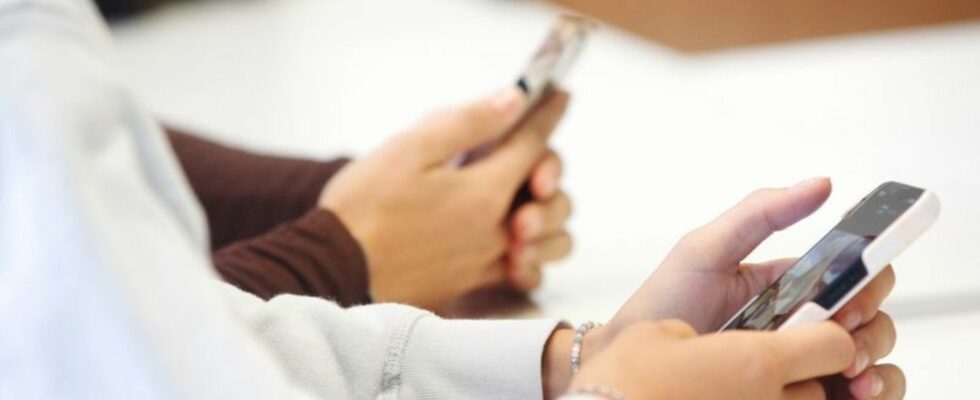schools
OECD advises responsible use of cell phones
The text robot ChatGPT has long since arrived in students’ everyday learning lives. photo
© Roland Weihrauch/dpa
Students who are constantly on their cell phones do not learn. However, if cell phones are used specifically in lessons, it can increase learning success. This is shown by an OECD study.
The industrialized nations organization According to a study, OECD recommends the responsible use of cell phones in school lessons. At the same time, she warns of massive learning deficits among students who constantly look at their cell phones.
Students who learned for one to five hours a day using mobile devices achieved better results than those who did not do so or instead used their cell phones in class for private purposes, the OECD said in Paris.
Using mathematics lessons as an example, the OECD used student surveys to find that an average of 65 percent say they are distracted by their cell phones in class. At 59 percent, the proportion of students who felt distracted by their friends’ private cell phone use was almost similar. According to the OECD study, students who are regularly distracted by cell phones suffer a learning deficit of three quarters of a school year. Poorer learning outcomes were particularly evident among students who played around on their cell phones for more than an hour a day during class.
Constant availability via cell phone stresses students
In addition, cell phones are stressful for young people. In France, for example, 43 percent of students said they feel nervous or anxious when they don’t have their phone nearby. These students performed worse, were less satisfied with their lives, had less control over their emotions and were less resilient to stress. There would be less distraction if students were required to turn off notifications on their cell phones during class and therefore did not feel obligated to respond to private messages during class.
In its study, the OECD does not believe in a strict ban on cell phones in school – and not alone, because according to the survey, despite the ban, many students still secretly use their cell phones. Since the Corona pandemic at the latest, mobile devices have become an integral part of school lessons and have proven their benefits. Accordingly, politicians must ensure that there is equal access to such learning tools for young people, regardless of whether they live in a big city or in the countryside or in a wealthy or disadvantaged district.
OECD study

